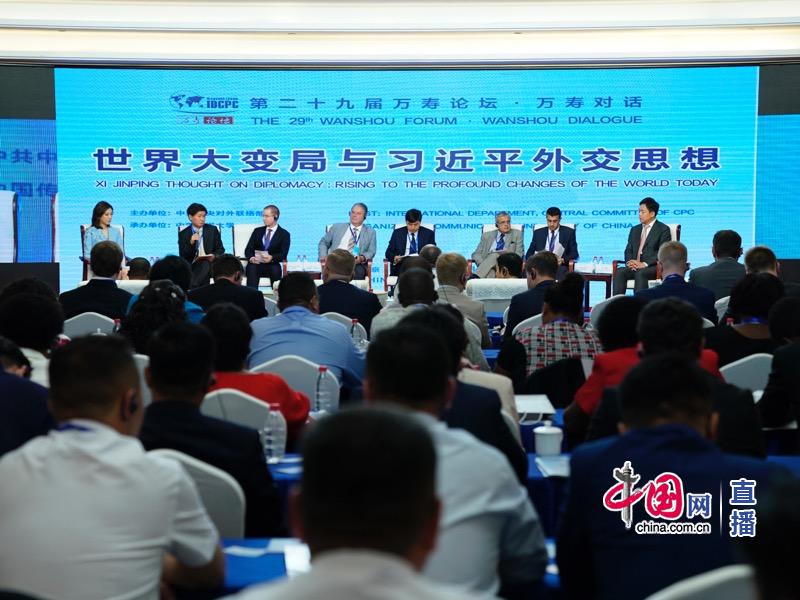Wanshou Forum featuring Xi's Thought on Diplomacy opens in Beijing

The 29th Wanshou Forum opened in Beijing on June 25 with a theme of "Xi Jinping Thought on Diplomacy: Rising to the Profound Changes of the World Today".
Delegates of political parties and think tanks from Mexico, Russia, India, Egypt and their Chinese counterparts exchanged ideas on the concept of "a community of a shared future for all humanity", strategies to deal with the profound changes globally, as well as the role Xi's thought on diplomacy is playing in the current international community.
Against a backdrop of a mounting tide of criticism against immigrants and voices challenging multilateral trade system recently, notably the role of the WTO and its most-favored-nation treatment (MFN), Li Xiangyang, dean of National Institute of International Strategy, Chinese Academy of Social Sciences, opened the dialogue by discussing the global challenge of nationalism and anti-globalism.
Building on Li's remarks, Ricardo Anaya Cortés, a member of Rafael Preciado Foundation and a former presidential candidate of Mexico, reinforced his opposition to the use of tariffs as a diplomatic tool in Mexico-U.S. relations.
In addition, Boris Shmelev, director of the Center of the Political Studies in the Institute of the Economy of the Russian Academy of Science, noted the need for using international law to improve global stability.
In response to audience questions about the role Xi's thought on diplomacy plays in the current international community, Li believed this provided a new concept and a promising perspective of development to comprehensively address the global challenges not only on the economic front, but also culturally.
"If the economy requires development, then the civilizations of different countries need exchanges and mutual-learning, in order to promote inclusiveness, which is fairly crucial in resolving many global affairs currently," Li said.
On the question about what measures should be adopted to ensure a promising future for international relations. Wang Fan, vice president of China Foreign Affairs University, said that "the interaction between countries is essentially about good communications and mutual understanding between people."
H.H.S. Viswanathan, distinguished fellow at the Observer Research Foundation India, added: "From my point of view, there are two major challenges facing our world today - inequality, both domestically and internationally and an identity crisis during the policy-making process, and they need to be carefully considered by governments around the world,".
Wang Yiwei, professor of School of International Studies of Renmin University of China, added that, "Inspired by Xi's thought on diplomacy, I think on a national basis, every country should focus on self-development, rather than recklessly blaming other countries for its problems."
"Likewise, in terms of international relations, I believe the concept of 'a community with a shared future for all humanity' endorses a multidimensional world, in which different modes of development learn from each other in a mutually respectful manner. Meanwhile countries still hold their own destiny for further development," Wang said.
Considering the question of how to build mutual trust and transparency in today's digitalized world, Li Xiangyang believed maintaining long-term and consistent communications between countries was crucial.
"A global governance system based on the principle of achieving growth through discussion and collaboration should be built, in order to provide a rule-based global environment to promote mutual trust," Li noted.







